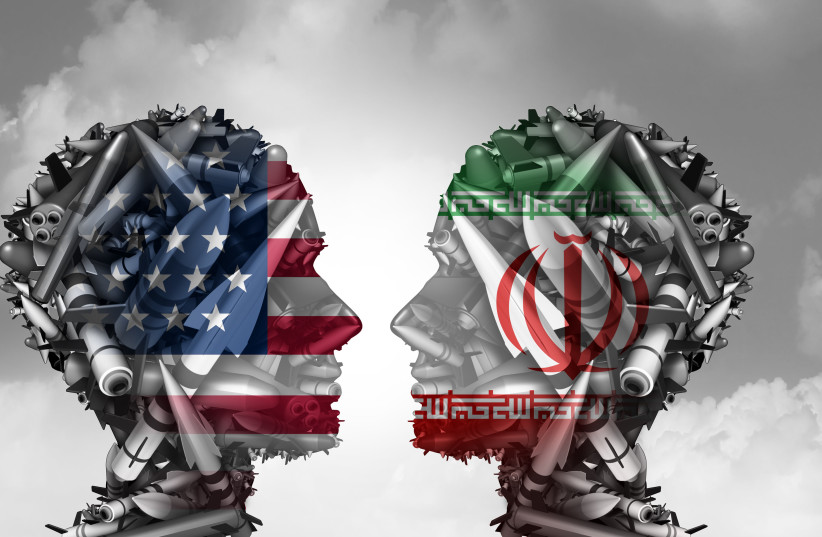There have always existed communication channels between the US and Iran, despite both sides officially denying it, especially the US. This is due to various underlying factors, the most prominent being that their actual interactions surpass what they publicly acknowledge.
Their relationship has predominantly undergone brief periods of strain and genuine tension. This became most evident during the tenure of former president Donald Trump, particularly following his withdrawal from the nuclear agreement in 2018.
The recently announced agreement between Tehran and Washington, involving the exchange of five American prisoners for an equivalent or larger number of Iranian prisoners held in the US, alongside the release of around $6 billion of Iranian funds from a South Korean account and their transfer to an Iranian account in Qatar, highlights several significant points.
Firstly, it demonstrates that both sides are driven by pragmatism and political expediency in their actions and policies. Despite their openly declared hostility, they persist in engaging in dialogue, forging understandings, and striking deals. Secondly, it indicates a significant shift in dynamics. The Iranian negotiators now possess a stronger capacity to secure concessions from their American counterparts.
Iran can secure concessions from the US
This is clearly evident in the recent agreement, which entailed the release of billions of dollars in Iranian funds and a simultaneous exchange of prisoners. Such an exchange might seem unconventional, as these agreements usually adhere to a reciprocal pattern, unless a high-profile prisoner is implicated on one side.

This does not apply to the US prisoners, as they consist of American citizens without any high-ranking officials among them. Nonetheless, the driving force behind this decision was the Biden administration’s necessity to attain politically valuable achievements, given the recent decline in its foreign policy successes.
The implications of this prisoner exchange agreement transcend its specific terms and delve into the broader dialogue between Iran and the US, particularly regarding the revival of the nuclear deal. Observers interpret this recent accord as an indicator that establishing a framework to resurrect the Joint Comprehensive Plan of Action (JCPOA) remains within the realm of possibility.
The sole obstacle lies in coming up with a formula that would be acceptable to both Iran and the US. The entire situation appears to be a delicate balancing act, with each side carefully assessing their gains and losses.
However, the specifics of the prisoner exchange agreement also underscore Iran’s effective strategy of exhibiting patience to secure significant concessions from the American negotiators. This achievement might have implications for any deal connected to reviving the nuclear agreement.
THIS ISN’T the first instance in which Iranian negotiators have accomplished their objectives following years of delay and postponement. In the past, Iran secured strategic advantages through the terms of the JCPOA, which was entered into by the Obama administration as part of the P5+1 group with Iran.
In reality, this functioned essentially as a facade that granted international legitimacy to Iran’s nuclear pursuits, affording them a historic opportunity for strategic expansion and regional influence. This enabled Iran to continue advancing its missile program, developing drones, and engaging in regional activities, while the agreement itself merely temporarily deferred Iran’s nuclear ambitions rather than permanently halting them.
A significant insight drawn from the “mini-deal” of the prisoner exchange is that there exists potential for replicating a major agreement concerning the revival of the nuclear deal. The successful culmination of the smaller deal indicates the viability of progressing toward the larger agreement, provided that the appropriate conditions and circumstances are in place.
It is probable that the matter is not solely focused on prisoners, particularly considering that the Iranian side has consistently stated that negotiations with the US encompass all contentious issues, not just prisoners. Consequently, there is a significant possibility that other dimensions of the agreed-upon terms, or even the broader deal itself, could be gradually revealed.
My reasoning is that the stipulated conditions for prisoner release lack substantial coherence. Hence, it becomes apparent that we are merely scratching the surface, and the US might have conceded to provide the Iranians with a symbolic victory in return for securing the deal that the Biden administration fervently seeks – the revival of the nuclear agreement.
The release of billions of dollars in Iranian funds could function as an initial leverage within the broader understandings that have been established, aiming to persuade the Iranians to proceed with the comprehensive deal regarding the revival of the nuclear agreement.
Another element reinforcing this perspective is the significant visit of a Russian official to Tehran soon after the finalization of the prisoner exchange agreement.
Sergei Ryabkov, the deputy foreign minister of Russia, engaged in discussions with Iranian deputy foreign ministers in Tehran concerning the prospects of the JCPOA for resolving Iran’s nuclear program. The Russian Foreign Ministry emphasized their rejection of any Western attempts to impose specific plans and new approaches for addressing matters related to the JCPOA.
This plan poses a risk to the legitimate and mutually beneficial cooperation between Russia and Iran across various domains. This implies that Russia acted swiftly to comprehend Iran’s actions with the aim of averting any agreements that could undermine its strategic interests.
Reports from American and Israeli media indicate that Israel is convinced that the prisoner exchange agreement is merely a component of broader understandings between Iran and the US. They hold the belief that a viable formula concerning the nuclear issue is already established.
This scenario is highly plausible, given the current circumstances. The only element yet to be unveiled is the official announcement, as the final touches are being formally applied to introduce the anticipated comprehensive agreement.
What we are witnessing, including the events linked to the reinforcement of the US military presence around the Gulf and Iran’s reactions to American “provocations,” constitutes merely a portion of the planned strategy for negotiating the official agreement.
The writer is a United Arab Emirates political analyst and former Federal National Council candidate.
